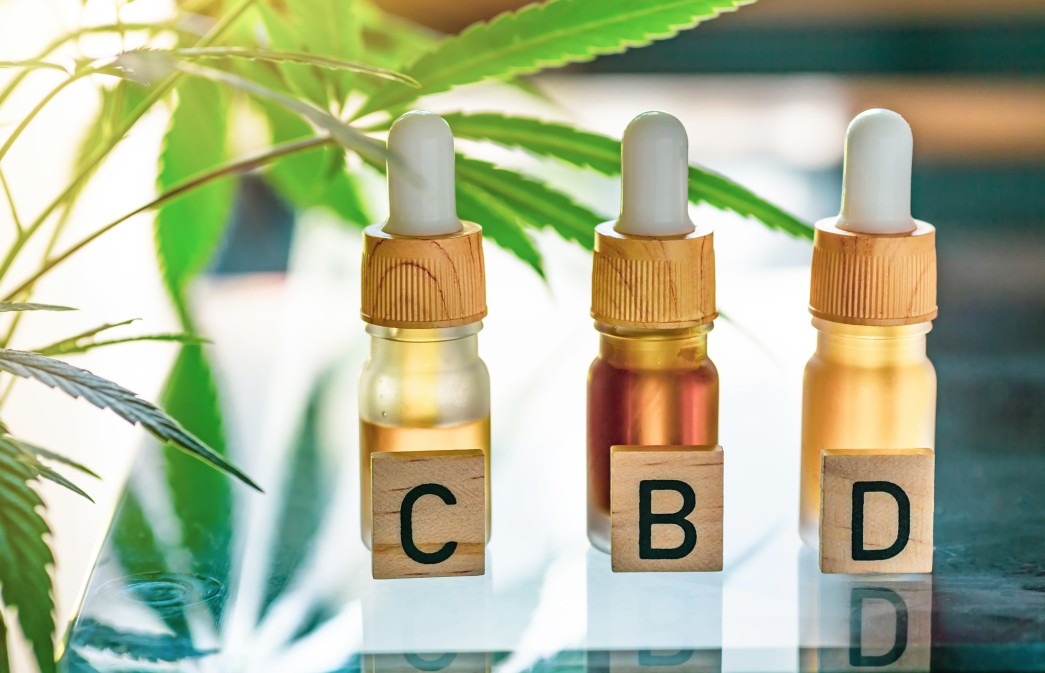In 2018, the United States passed a farm bill that makes it legal to grow and produce hemp and hemp products. Because of the close association between hemp, marijuana, and CBD, there is often confusion about the differences between these products.

cbd
CBD is an extract from either a hemp plant or from a marijuana plant.
Cannabis is an annual crop plant, like corn or green beans, that has two primary classifications — Indica and Sativa. Marijuana and hemp are members of this plant genus, but hemp only comes from one of these species.
Hemp exclusively belongs to the Sativa species, but marijuana can be a member of either Indica or Sativa species.
Because both marijuana and hemp come from the Sativa species, they share some traits, but they are not the same plant. Hemp plants contain little to no THC, the psychoactive compound in marijuana.
In the United States, hemp crops are tested to assure that the THC content in them is less than the legal limit of 0.3%.
Similarly, CBD oil and hemp, or hemp oil, are not the same either. CBD oil is extracted from the stalks, leaves, and flowers of the hemp plant. These parts of the plant contain a higher concentration of CBD than the seeds.
Hemp oil is extracted from the seeds of the plant and does not contain any CBD. But hemp oil does contain nutrients, fatty acids, and bioactive compounds that may also have health benefits.
Uses for Hemp and Hemp Oil
The hemp plant and its seeds can be used for many commercial and industrial products.
The stalks are manufactured into a tough fiber that is used to produce:
- Rope
- Netting
- Canvas
- Carpet
- Paper Products
- Cardboard
- Filters
- Animal Bedding
- Mulch
- Chemical Absorbents
- Fiberboard
- Insulation
- Concrete
- Clothes
- Shoes
- Bags
- Biofuel
The seeds of the hemp plant are used to make:
- Bread
- Granola
- Cereal
- Flour
- Milk and Dairy Products
- Protein Powder
- Animal Food
Oil extracted from hemp seeds does not contain any CBD but has high levels of omega-3 and omega-6 fatty acid, gamma-linolenic acid, and antioxidants.
Due to the health benefits of these compounds, hemp oil is often added to health foods and organic beauty products. As a renewable source of oil, it is also added to:
- Fuel
- Lubricant
- Ink
- Varnish
- Paint
Uses for CBD
Although clinical research is ongoing, many people believe that CBD offers health benefits for:
- epilepsy
- pain and inflammation
- anxiety and depression
- addiction management
- neurodegenerative conditions
- acne
- sensitive skin
- rashes
- eczema
- psoriasis
Research suggests that using CBD is safe and has limited side effects. Studies have shown that CBD affects the brain and body function as part of the endocannabinoid system by regulating certain neurochemical receptors.
CBD has been found to affect receptors in mice that affect memory, emotion, pain, and movement.
CBD also has antioxidant effects that may protect against cell damage. In 2018, the Food and Drug Administration (FDA) approved the first prescription medication containing CBD. Epidiolex is approved to help control seizures in patients with rare forms of epilepsy, Dravet and Lennox-Gastaut syndromes.
Numerous small studies have reported no side effects from CBD use. A more extensive study done for the medication Epidiolex reported some side effects, including fatigue, decreased appetite, diarrhea, and elevated liver function tests.
CBD from Hemp versus CBD from Marijuana
CBD can also be extracted from marijuana plants. This type of CBD does contain THC, between 5% and 30% depending on the plant and production process. CBD from marijuana does produce a psychoactive feeling of being high.
Research is being conducted on the benefits of combining CBD with THC for medical conditions. THC has been shown to affect receptors related to pain.
Scientists are searching for an effective combination of CBD and THC that offers positive benefits without excessive side effects.
However, CBD from marijuana is only legal in states where medical or recreational marijuana is legal.
Other states allow CBD extracted from hemp because it is below the federal legal limit of 0.3% TCH.
